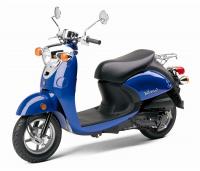Search the Community
Showing results for 'alcohol'.
Found 17,501 results
-


Riding That Roller Coaster: The Emotional Side of Weight Loss Surgery You Might Not Expect
7 Bites_Jen posted a topic in Weight Loss Surgery Magazine
While most of us knew all about the physical side of Weight Loss Surgery, many people have no idea about the emotional ride they're about to face. This article discusses all aspects of the "emotional roller coaster" from the moment you first decide on having bariatric surgery all the way up to the maintenance phase of your weight loss. It's a wild ride baby! When was the last time you were on a roller coaster? If you’re like me, it’s been a while. In fact, the last time I was on a roller coaster I was 310 lbs and could barely fit into the seat. The restraint almost didn't go around my tummy. I was squeezed in like Cinderella’s step-sister’s foot must have tried to squeeze into that tiny shoe. Yep. I was Drizella’s foot and the coaster seat was the glass slipper. I’m sure it was a comical, if not sad and pathetic site, for those around me. It was embarrassing to me, to say the very least. But I laughed it off and went on, as I tended to do. That roller coaster was a wild ride. It had huge climbs, steep drops, loop-de-loops, sharp turns, and at one point it feels like you’re lying on your side. Honestly, it’s a wonder I stayed in the coaster even with the restraint!! The end of the ride was abrupt - it felt like my insides were coming out of my mouth when it stopped short back at the beginning of the track. When it was over, I felt accomplished, in a way. I’d survived that coaster ride, wild and uncomfortable as it was. Many people don’t realize that life before, during, and after weight loss surgery becomes a roller-coaster ride of it’s own. It has the huge climbs of elation and joy and excitement, the steep drops into anxiety and depression, and the loop-de-loops, sharp turns, and lying on your side moments of uncertainty, worry, and fear. Here are some of the emotional dealings that will occur before, during, and after surgery that you might not know. 1. Pre-Surgery Elation. This happens when you are finally approved for surgery. It’s going to be a reality! You are going to get a brand new lease on life! The period of life where you are having to go through diet after diet is finally coming to an end! You might tell everyone you know or you might decide to keep your secret to yourself. Regardless, you are excited and ready to go! 2. Pre-Surgery Blues. This is when you realize that you are going to have to say good-bye to one of your best friends ... Food. You come to the realization that there are some favorites that you are just not going to be able to eat anymore. Depression sets in slightly, and you might even go on a food bender - similar to what an addict might do. At this point you might even question your decision to go through surgery. 3. Day of Surgery. You’re going to be going through a myriad of emotions during this time. You’ll feel excitement, anxiety, apprehension, and impatience all at the same time. You’ll be worried because, after all, it is a major surgery you’re about to go through. But at the same time, you’ll be excited at what’s about to happen. When you wake up from anesthesia, you might be scared, especially if you’re having a rough transition out of anesthesia. You might be a little confused, wondering where you are. When your body settles down a bit and you remember where you are and what just happened, you might feel a little concerned. "Did everything go okay?" "Is this going to work?" "Did I just make the biggest mistake in my life?" On the other hand, you might wake up beautifully, singing the praises of your surgeon and his/her team, excited to begin your new life. These feelings and emotions will likely cycle throughout the day as you’re getting used to the idea of what just happened and your body relaxes and comes out of shock from surgery. 4. Going Home. When you’re finally released to go home, you’ll either be excited or scared. Thoughts might rush your brain like “will I be able to do this on my own?” and anxiety might set in again. You might, again, question your decision to undergo surgery, especially once the monotony of the liquid diet phases set in. The first few days might be easy, and the next might be excruciating. You’ll be in some discomfort because of incisions and if the surgeon inflated your abdomen with gas prior to surgery (commonly done in laparoscopic surgeries), and this might heighten your doubts and anxieties. You might begin to worry about issues such as leaks, slippage, or staples coming loose. 5.The first few months. You will be going through a mourning period at some point, and for some that occurs during the first few months after surgery. You no longer are able to lean on food for emotional support, so you might feel sad. You might even go through a type of “withdraw” from food, similar to what an addict might be going through their first few days in rehab. You’ll be able to eat more some days than others, and that will lead you to worry if your surgery is working or if there’s something wrong. Some days you’ll be jealous of watching everyone around you eat foods that you once loved. Others, you’ll be glad you can’t/don’t eat those things anymore. By the time you've finished all of your phases and are on to real food, you’ll be relieved and excited, and likely worried and anxious as well. Whereas before, you were relying on liquids for sustenance, now you’re on your own and have to rely on figuring your food choices out for yourself. 6. The losing phase. From the moment you leave the hospital until you reach your goal you are considered to be in the losing phase of surgery. For the purposes of this article, we’re going to call the losing phase the time period from month 3 (about the time you transition into full solids) to the point where you reach your goal. There will be many frustrations, joys, and concerns in the months ahead. Some days you’ll forget everything you were taught about nutrition and make yourself sick on something you shouldn't have eaten. Other days you’ll be 100% on track. You’ll have moments of pride and joy, and moments of shame and weakness. You’ll revel in finding out you can eat something as simple as asparagus and despair over not being able to eat rice pilaf. You’ll finally reach your “groove” point sometime during month four or five, and things begin to go well. You’ll reach a stall or two (or five ...) and wonder if you’re doing something wrong or if you've messed up your new tummy. You’ll marvel over losing 10 lbs in one week. You’ll wonder why you only lost 2 lbs the next week. When your loss starts to slow down, you’ll worry that you’re not exercising enough, that you’re eating too much or too little, or worry that your surgery is beginning to fail. You’ll relax more when you are consistently losing, even if it has gone down to 1-2 lbs a week. 7. The maintenance phase. When you reach your goal weight, you will have reached what is called “maintenance”. This is the final stage that you will likely be in for the rest of your life. Here, you will change your diet slightly in order to not lose or gain any more weight. You will get frustrated a time or two - especially the first time you gain a few pounds. You will marvel at what you've lost, but are concerned with the way your body looks now. You will have loose skin, which may cause body image issues. If you’re single, you might notice more possible suitors paying more attention to you. You might fall from one addiction (food) into another (sex). You might also be tempted into other addictive substances or habits such as alcohol, cigarettes, shopping, or pornography. Alternatively, you may look back at your loss, as meaningful and inspirational. You might revel in the way your life has changed and be happier than you have ever been and be ready to branch out and help others succeed in their bariatric surgery journeys. Tips on Riding the Roller Coaster Knowing that these emotions are possible doesn't mean they will happen for everyone, and doesn't mean you can’t get through them. The following tips will help you stay on the road to success and prevent you from falling off the wagon and into an abyss of self-doubt and depression: 1. Support. This is the number one most important thing for WLS patients. Even more important than food is support. Support can be found at home, through friends and family, in a hospital or surgery center support group, or even online forums such as Bariatric Pal. 2. Stick to the plan. As tempting as it might be to veer off and eat something you’re not supposed to, stick with your doctor or nutritionist’s eating plan as closely as possible. This will ensure that you continue to lose steadily, decrease the length and amount of stalls you’ll experience, and will speed up the healing process. 3. Vitamins. It sounds very cliche, but remember to take your vitamins! Focus on Iron and B Complex vitamins especially.A vitamin deficiency can result in depression, physical weakness, and poor sleep habits. 4. Speaking of sleep ... Make sure you’re getting plenty of it! At least 8 hours a day for an adult! Lack of sleep can lead to fatigue, weight gain, and (you guessed it!) depression! 5. Remember that “this too shall pass” ... These stages of emotional turmoil certainly won’t last forever. You’ll get over them as quickly as they overcame you. And keep in mind that each stage after surgery only lasts a short time in the grand scheme of things. Most eating phases last, at most, a month. After which you’re on to the next phase. 6. Keep a plan handy. Know that you will likely feel some unpleasant emotions or feelings and plan for them. Know what you’re going to do when you get upset, depressed, feel head hunger, or even feel physical pain from surgery. Have a list of friends to call at the drop of a hat, have a bottle of water ready to sip on at all times, or have your doctor’s phone number on speed dial. Know that these feelings will likely happen at some point in time, and be ready to deal with them when they do. 7. Remember that everything you’re going through is completely normal and OKAY. It’s important and helpful to know that everyone goes through a stall at some point. Everyone has pain during the first couple of weeks after surgery. Everyone eats something they shouldn't at some point. Whatever it is you’re going through - someone else has likely gone through it! 8. Finally, DON’T GIVE UP! Remember that this is a journey. As the old saying goes, “It’s a marathon, not a sprint.” There will be ups and downs on this wild roller-coaster ride. There will be twists and turns and loop-de-loops and there will be many moments when you feel like you’re laying over on your side. But, in the end, it will all be worth it. Your health, your life, and YOU ARE WORTH IT!! -
I agree with the comment that "everyone is different". Take your time as you re-introduce spice into your food. A little at a time will tell you a lot about your tolerance. As you can read above, there are lots of us who have had no trouble with potentially troublesome foods like spice or alcohol. Good luck to you.
-
Thanks everyone. I reallyfeel I could benefit by eating raisen bran for the constipation issue, but I am a carbaholic. Just like an alcoholic avoids the drink, I don't know where to quit when I start with carbs. I have to wonder if a small amount of raisen bran would cause cravings though. I guess I just need to try and see. It's going to eat up all my carb allowance for breakfast.
-
I was just curious how folks progress with their incisions. The instructions I received were keep them covered until the shower at 3 days out, then leave them uncovered. The exception was the drain site and to gauze it if it was weeping, but it's dry so keeping it uncovered. Only my t-shirts and nighties are over them. Shower daily with soap, Water and pat dry. Was told Absolutely no ointments, peroxide, alcohol, nothing. POSSIBLE TMI: So out of 4 incisions and the drain site only one big guy looks a bit angry. Sort of a big scab stretching open just a bit, but cannot see inside. That's the one that was used for the scope and such, and maybe the one they pull the evicted tummy from? Not sure on that last part and will ask next week. Next week the staples come out. So how are your sites progressing? What kind of stitches did you have? I know we're all different, but got curious as I again wanted to scratch near that ugly one. Surgery was 2/11. Thanks
-

Myth Busting: My Top 5 Weight Management Myths
Sally Johnston posted a magazine article in Food & Nutrition
Myth 1: Don’t eat after 7pm (or 7:30pm or 8pm, etc) Our body doesn’t switch off at night. Our metabolism continues ticking over as our heart pumps blood, our lungs breathe, our muscle tissue repairs, etc. This happens all day and all night. In fact, we burn calories when we are sleeping, just as we do when we are awake. Our metabolism does not shut down at 7pm, so there is no reason to stop eating at any one particular time. It is important however not to leave all of our eating until the evening. We should fuel our body regularly throughout the day so that it can perform at its best. This is even more important following weight loss surgery, as you can no longer eat the size of meals you once did. Therefore, you can’t skip your meals during the day and expect to meet your nutritional needs at night. Regular meals throughout the day are also important to control your hunger. Being ravenous at the end of the day is another trigger for overeating late at night. Some people find rules that they should not eat after a particular time at night appealing, as this is when they tend to overeat. Overeating at night can act as a ‘reward’ for getting through the day, or as a way to relax and wind down. It may be habit as we watch TV or a movie. This is when night eating is problematic, as it is not eating for hunger. Do you eat for reasons other than hunger at night? What else could you do to relax? Could you sort through those photo albums that are overflowing, have a bubble bath or phone a friend you haven’t spoken to for sometime. What about a jigsaw puzzle, a crossword, scrapbooking, sketching or even an evening walk? The options are endless. Myth 2: There are good foods and bad foods Food is neither good or bad, it is what we do with it that counts. Of course, some foods are high in energy (calories/kilojoules) and have little nutrition, so these should be eaten in small amounts. However, food itself is morally neutral. We assign it the ‘good’ or ‘bad’ label, or define it as ‘allowed’ or ‘not allowed’. By labeling food in this way, we are then ‘good’ or ‘bad’ if we eat it. A better view of food is one where all food is morally neutral. You have permission to eat any foods you choose, you can choose eat those that are more nourishing, most of the time. I often say to clients that there are 21 meals in a week, if one or two are not perfect nutritionally, it is not a problem. If the balance is reversed however and only one or two are nutritious, then this is not going to help you achieve good health. Some foods that provide little nutrition may provide much enjoyment, so may play a very valuable role in your diet in other ways. You can and should include foods that give you pleasure, it is managing the amounts of these foods that are important in achieving good health. Myth 3: Carbs are fattening Nothing is fattening in isolation. Anything can be fattening if you eat too much of it. Food is made up of combinations of carbohydrate, protein, fat, vitamins, minerals, fibre and water. Carbohydrate, protein and fat provide energy, the other nutrients do not. If we look at the nutrients that provide us with energy in their most simple form: • Carbohydrate contains 4 calories per gram • Protein contains 4 calories per gram • Fat contains 9 calories per gram. Whilst not a food, alcohol contains 7 calories per gram As you can see, carbohydrate itself is quite low in calories. So why does carbohydrate have such a bad reputation? The problem with carbohydrate containing foods is the way we have come to serve and eat them. We heap rice, pasta and noodles on our plates, leaving very little room for protein foods but more importantly, vegetables and salads. Low glycemic index, carbohydrate-containing foods can be quite nutritious and when eaten regularly, in appropriate amounts, help us manage our hunger through the day. We just need to look at how we serve them. For example, rather than serving spaghetti bolognaise as a plate or bowl of pasta topped with a little meat sauce, serve equal amounts of meat sauce and pasta on half the plate with a side salad on the other. Myth 4: You can do some extra exercise to compensate for eating ‘bad food’ The problem with this myth is that is feeds into the ‘good food’ and ‘bad food’ myth. If exercise is something we do when we eat ‘bad food’, exercise is seen as a punishment. Exercise can help you feel good, help you sleep better, give you more energy and help you become healthier. It should be enjoyed for these benefits. Myth 5: You need to eat every 3 hours to keep your metabolism up Every body is programmed differently and will have a slightly different metabolic rate. Some bodies will need to be fed more frequently than others. If we set a basic meal pattern, our body will let us know how much we need to eat. If we provide our body with appropriate fuel three times a day, it will then let us know if we need to eat more often, we just need to tune into the signals. If we start the day with breakfast, our body is given the signal we are starting the day and can help regulate how much we need to eat through the day. You may have heard a ‘rule’ after weight loss surgery to eat only three (or less) meals per day. I strongly believe that there is no one rule that fits every person. The only way you can tell if you need to eat between meals is to tune in to your hunger and satiety signals. If you are genuinely, physically hungry between meals it may be fine to have a small snack. If you are eating as you feel bored/tired/frustrated/lonely or simply watching the clock, then you need to work on another solution. Myth busting your way to success Whilst the internet has brought a whole world of information to our fingertips and can help share dietary fact, it has also perpetuated lots of dietary fiction. Think about some of the food facts you have come to believe over time. Write them all down and take them along to the dietitian in your weight loss surgery team. They will help you sort the fact from fallacy. -


Behavior Modification and Personal Accountability
Lori Nevins LCSW posted a topic in Weight Loss Surgery Magazine
Bariatric patients should embrace both of these powerful tools to enjoy long term post surgery success, with food and lifestyle choices, that are faced with well into the future. The Importance of Behavior Modification and the Role of Personal Accountability As a bariatric patient care professional, I encourage the following mindset with patients from all surgery time frames and life situations: Lifelong commitment to pursuing a healthier lifestyle, Compliance to the recommendations of behavior modification, and Addressing and grappling with the challenges that are life long Self-awareness and personal accountability are two areas that are not so obvious when assessing one’s own role in the struggle with obesity. We are aware of genetics, family history, medical co-morbid conditions and life stress that impact each patient’s history of their own struggle with being obese. So how do patients obtain the necessary tools to support the physical presence of bariatric surgery? Through engaging in a solution to the past disappointments of weight loss efforts that are already so familiar. Many patients report the path to insight and reflection often reveals mental justifications, old bargaining behaviors and frustrations that fuel negativity and inappropriate attachments to and uses of food. Although it is easy to lay blame for many things in life, self-deception only facilitates the repetitive cycle of anger and disappointment. In the professional arena, we often discuss the addictive quality of food and how food has a parallel function in the same manner that other behaviors do, i.e. shopping, drugs and alcohol, sex, gambling and the like. The need for emotional escape and mental distance can encourage us to use food as “anesthesia”, a way of shutting down and shutting out the world around us. We are careful to watch for those cross-addictive behaviors following bariatric surgery and recommend supportive resources across the board. These services provide a safe and secure way to investigate and discuss personal issues that are relevant and central to the patient’s path to success following surgery. The role of a supportive aftercare program or community of patients, even individual therapy, is a vital component to future success and and be a valuable tool on the road to recovery, helping to smooth the transition and adaptation to new food related behaviors and lifestyle choices. The ability for patient’s to share a parallel experience and be able to “relate” to a certain stage of recovery, or a certain type of struggle with others, will provide an opportunity for engagement and bonding with others. On a therapeutic level, individual counseling can expand one’s degree of awareness and promote a greater sense of personal accountability, once the roots of old behaviors and attitudes have been identified and deciphered. A patient can then restructure their responses to daily challenges that may have been inadequate prior to surgery. As patients walk the road of recovery from obesity, while engaging in physical as well as emotional healing, the element of discovery and pride is tangible and even contagious. Patients will enjoy improved health, greater energy and a strong positive attitude of self worth; what follows can be a heightened sense of calm, balance and overall peace of mind. Once personal discoveries have been made, individually or in a group setting, bariatric patients can feel a greater sense of control in planning the path in front of them. Commitment and compliance are two key elements that promote post surgery success. As patients employ newfound tools and wisdom on a consistent basis, quality of life can be infinitely better as well as profoundly rewarding. -

Behavior Modification and Personal Accountability
Lori Nevins LCSW posted a magazine article in Post-Op Support
The Importance of Behavior Modification and the Role of Personal Accountability As a bariatric patient care professional, I encourage the following mindset with patients from all surgery time frames and life situations: Lifelong commitment to pursuing a healthier lifestyle, Compliance to the recommendations of behavior modification, and Addressing and grappling with the challenges that are life long Self-awareness and personal accountability are two areas that are not so obvious when assessing one’s own role in the struggle with obesity. We are aware of genetics, family history, medical co-morbid conditions and life stress that impact each patient’s history of their own struggle with being obese. So how do patients obtain the necessary tools to support the physical presence of bariatric surgery? Through engaging in a solution to the past disappointments of weight loss efforts that are already so familiar. Many patients report the path to insight and reflection often reveals mental justifications, old bargaining behaviors and frustrations that fuel negativity and inappropriate attachments to and uses of food. Although it is easy to lay blame for many things in life, self-deception only facilitates the repetitive cycle of anger and disappointment. In the professional arena, we often discuss the addictive quality of food and how food has a parallel function in the same manner that other behaviors do, i.e. shopping, drugs and alcohol, sex, gambling and the like. The need for emotional escape and mental distance can encourage us to use food as “anesthesia”, a way of shutting down and shutting out the world around us. We are careful to watch for those cross-addictive behaviors following bariatric surgery and recommend supportive resources across the board. These services provide a safe and secure way to investigate and discuss personal issues that are relevant and central to the patient’s path to success following surgery. The role of a supportive aftercare program or community of patients, even individual therapy, is a vital component to future success and and be a valuable tool on the road to recovery, helping to smooth the transition and adaptation to new food related behaviors and lifestyle choices. The ability for patient’s to share a parallel experience and be able to “relate” to a certain stage of recovery, or a certain type of struggle with others, will provide an opportunity for engagement and bonding with others. On a therapeutic level, individual counseling can expand one’s degree of awareness and promote a greater sense of personal accountability, once the roots of old behaviors and attitudes have been identified and deciphered. A patient can then restructure their responses to daily challenges that may have been inadequate prior to surgery. As patients walk the road of recovery from obesity, while engaging in physical as well as emotional healing, the element of discovery and pride is tangible and even contagious. Patients will enjoy improved health, greater energy and a strong positive attitude of self worth; what follows can be a heightened sense of calm, balance and overall peace of mind. Once personal discoveries have been made, individually or in a group setting, bariatric patients can feel a greater sense of control in planning the path in front of them. Commitment and compliance are two key elements that promote post surgery success. As patients employ newfound tools and wisdom on a consistent basis, quality of life can be infinitely better as well as profoundly rewarding. -
Take it very easy on the food. . And take the alcohol totally in moderation. .. 6 week s is early. Try half a glass of wine or half a shot of spirit absolutely drowned in non fizzy mixer. As long as its not fizzy or acidic you should be able to enjoy :0)
-
I didn't, but a lot of folks on here have..My doc told me to think of my new pouch as a newborn baby..you wouldn't give a newborn alcohol, in time your pouch heals a little more into a adolescent, so on and so on..thats sort of the outlook I took..the told me in 18 months the healing should be well over, and then experiment..course I waited like 6 months..lol..take a sip and see if it hurts you, but don't push it. All things in moderation as they say..
-
Hello everyone i am 6 weeks post op gastric bypass and my girl surprised me for a vacation to the caribbean this saturday, any ideas on drinking n eating out this early thanx
-
Hey there ... Quick update on a few things. I got on my fancy FitBit scale this morning. I have officially lost the alcohol induced weight gain from my Florida trip plus a little bit more. As a matter of fact, my integrated FitBit app tells me I have 14.7 more pounds to lose to hit my goal of 169. A couple thoughts on that 169. First, I must tell you that the weight is falling off at glacial speed. Which means very, very slow. I am still really trying to stick to the plan that has brought me this far, but the results are far more frustrating than when I started this adventure. Sure, I get it. More ass, more weight loss. Less ass, less weight loss. Statistically speaking, a half pound loss of smaller ass is the percentage equal of a full pound loss of fat ass. So I got that going for me. But I am not doing this to amuse some pudgy mathematician. I really don't give a rat's patooty about a percentage loss. I'm in the game for poundage! The excitement of hitting the home stretch to 169 has been tempered down quite a bit since Dr. X gave me the news back in December that he wants me to go for 150. If you remember, he also told me that we have another year and half to go. New goal date is May 15, 2015. Yes, this kind of took the wind out of my sails. I think I mentally took a breather and took my eye off the ball a bit. Maybe that's why I have been hovering here at the 183ish level for a month or so. I need to get re-motivated. First off, my travel schedule is definitely counterproductive to to maintaining a strict diet plan. Yes, I do really well choosing my food options. I choose healthy foods and reasonable portions. However, these healthy choices are the choices that people make when they are trying to maintain their weight. Not the more restricted menu a weight cutter should be making. It's not that easy when you're dining out for every meal for a week straight. And then there is Al C Hall. There is no way that more than several adult beverages a day is good for weight loss. I know it and you know it. But while I am on a precious vacation, I have to imbibe. Ya know, just to be polite. This is why I settle for maintaining my weight while I'm jet-setting. So here I am. I'm under 15 pounds from my original goal. Working through a hectic travel schedule and trying to maintain my weight. That's not the plan. My plan was to be 169 by May 15, 2014, and I am gonna stick with that plan. That means I'm going to have to change a few things. Honestly, I really need to get more active. It's super hard to get motivated when you're ball deep in snow. Yeah, I'm using the treadmill a bit. And I hit the weights occasionally. But it's not enough and I know it. I enjoy walking on a beautiful summer day during a rousing round of golf. Working the treadmill and staring at the wall, not so much. Maybe I'll try the Shred that Lap Band Girl is always touting? She is my muse. She is always reminding me of what it takes to get to your goal and maintain it. Suffice to say, sitting on my backside is not in the equation. That's it for now. Same goal - 169. Same goal date May, 2014. Same plan? I'm going to have to think on this one. More activity is definitely on the schedule. And maybe I'll cut off one of my now thinner legs. Buh Bye JT Fat Fanatics! Email your comments and questions to: mccgolfer99@gmail.com I will answer all questions and, who knows, your pithy comments might make the blog!
-

Post-OP Vacation Q?
Dickens22 replied to supermom223's topic in POST-Operation Weight Loss Surgery Q&A
The thing to remember is that drinking alcohol cause dehydration. Dehydration causes dizziness , nausea and severe legs cramps. Stay hydrated. Two of any drink is more than enough to have fun. Have a plan in place so you don't over drink. Wine is the most agreeable for me. Haven't watered it down. Alcohol seems way stronger after the sleeve. -


Post-OP Vacation Q?
supermom223 replied to supermom223's topic in POST-Operation Weight Loss Surgery Q&A
Thanks for the reply. I guess I will have to spend ths week before the vacation trying out which alcohols work best for me..right..lololol Thanks for the advice. I am thinking a bloody mary may be okay, and a little white wine mixed with crystal ligt. -
Hello, I am 6 months out from surgery and have lost 70+ lbs so far. I am 10-15lbs away from goal weight. I am asking a question here NOT to be criticized, but just for suggestions. If you do not agree with drinking after surgery well than thats your life style and my question is for someone who does. That being said,, It's my birthday and my husband and I planned an all inclusive get away WITHOUT the kids. Havent been away since before kids were born 5 years ago. I have no problem making healthy food choices while away. I know Protein first and all that. My real question is what drinks I should have. Again, I know Alcohol is not healthy so I dont need a lecture. But I do like to have a few drinks, especially by the pool. But problem is margaritas and all those frozen drinks are loaded with sugar and will surely make me nauseous, I cant drink carbonated beverages so diet coke and rums or vodka sodas are out. And I dont want anything too strong like martinis b/c I dont want to over due it or be sick. Wine is always safe especially watered down. If anyone has suggestions that I have not thought of id like to hear them. Thanks!!
-
Hello, I am 6 months out from surgery and have lost 70+ lbs so far. I am 10-15lbs away from goal weight. I am asking a question here NOT to be criticized, but just for suggestions. If you do not agree with drinking after surgery well than thats your life style and my question is for someone who does. That being said,, It's my birthday and my husband and I planned an all inclusive get away WITHOUT the kids. Havent been away since before kids were born 5 years ago. I have no problem making healthy food choices while away. I know Protein first and all that. My real question is what drinks I should have. Again, I know Alcohol is not healthy so I dont need a lecture. But I do like to have a few drinks, especially by the pool. But problem is margaritas and all those frozen drinks are loaded with sugar and will surely make me nauseous, I cant drink carbonated beverages so diet coke and rums or vodka sodas are out. And I dont want anything too strong like martinis b/c I dont want to over due it or be sick. Wine is always safe especially watered down. If anyone has suggestions that I have not thought of id like to hear them. Thanks!!
-


30 days till Sleeve surgery
Sandy17051 replied to Jaime_Boston's topic in Tell Your Weight Loss Surgery Story
you'll do fantastic!!! I am now a little over 6 months since surgery. I was like you before my surgery, worried, scared, excited plus whatever else emotions/thoughts hit me. Some of the things I did before surgery to keep my mind off of it was I cleaned, and cleaned and cleaned this house more. I it needed it done, it's good exercise and I wouldn't be able to do it after surgery for a while. I also took time for me. I read some good books, watched the movies I liked (I live with my boyfriend and 20 year old son), and I danced. When I was cooking and cleaning, I cranked up the tunes and away I went. Of course I was home alone lol but it made me feel good! The Protein shakes...egads...I started mixing the Protein powder in with some vanilla yogurt, or even added a few chunks of banana and made them into a milkshake. The day before surgery the only thing I did was made sure my bag for the hospital was packed, all laundry done, and I made my bed (the recliner) and got my little area ready for when I came home. After my surgery when my son and boyfriend went back to work, my boyfriend fixed me up a small ice chest to keep beside the recliner. I kept bottled Water in there so that way I didn't have to keep getting up to get a drink. One thing my hospital had me do was drink water out of those little plastic medicine measuring cups. Like the kind you get on top of a bottle of nyquil. They had me drink 8 oz per hour to start. Those little cups were nice, I could sip on them and still keep a track of how much I was drinking. Now I use them to make little cups of Jello, almost like a jello shot but without the alcohol. They're good for quick sweet craving fixes. Like jencovi said "don't stress it", having sleeve surgery was the best thing I ever did for ME! Sandy -


How was your 5:2 day today?
CowgirlJane replied to Oregondaisy's topic in Gastric Sleeve Surgery Forums
Da Shoes! the night of the awards banquet I was walking with my boss down to dinner and one of the men I work with catches up to me and says "I had to run to catch you girl, you can rock those heels". I loved it. I watched a u tube done by a pro runway model to learn how to walk in high heels and the key is to just own it. Tentative short steps don't work. We had to catch shuttle busses from our hotel over to the other hotel where the big closing dance party was held. I wound up being on my feet for hours - I should have sat down more - but it did make it easy to leave the party at 10:30 as my feet did start hurting. If I had sat down instead of stood/walked for hours and hours I could have worn those shoes all night. 1030 was a good time to leave. Remember this event had no "spouses" so was at least 85% men. The booze was flowing and the mood started to become very alcohol induced festive about that time - like I could sense the change in the vibe. I was chatting with a couple of guys I used to work with - one of them was my employee 10 years ago. It kept me "safe" and I didn't get hit on over and over like I did last year. I am finally figuring out how normal women deal with these social situations. I did pick up a really cool guy "stalker" but that was earlier in the week. LOL. I really liked him but of course no work with pleasure and he lives in like Kansas. My boss noticed him too as he came and chatted me whenever the opportunity presented and managed to get my phone number too - but again, he is in Kansas so no real problem. I do own a pair of Guess booties that I still don't feel comfy walking in - fear of falling. They aren't that much taller and they are fairly comfy but there is something about the foot angle that is just hard. I suspect that is why i like them - the steep angle makes my huge feet look better...haha. I have another pair of bootie/shooties that I bought before I even knew what a shootie was - more than a year ago. They are a black and white floral pattern with sheer black panels on part. They are pretty wearable but to my eyes a little more cutting edge looking than a girl from the country wears around here. Nobody would look twice in NYC etc but around here, they look weird. I only wear them occasionally but Steven is crazy about them because they have a sheer portion which turns out to be the thing that gets his interest. Speaking of Steven, it is his birthday today - turning 66! I am forbidden to celebrate it in anyway which is probably one reason he blew me off again and hasn't called. I am thinking about dropping something small off at his house - can't decide since he asked me to not do anything. I imagine he isn't thrilled - I know that turning 50 later this year is kinda of a yikes thing for me. Anyway, I am not telling him today about my decision due to the birthday, but soon. -


Making Your Weight Loss Surgery Diet More Affordable
Alex Brecher posted a topic in Weight Loss Surgery Magazine
Your diet after weight loss surgery is likely to be entirely different from the eating habits that you had for years before surgery. Before surgery, junk foods, fast foods, and convenience foods may have been regular parts of your diet. After surgery and your return to solid foods, your diet should rely mostly on lean proteins, vegetables, fruits, and low-fat dairy products. A common concern for weight loss surgery patients is that healthy foods have the reputation of being expensive. You might fear that the commitment to years of healthy eating will be outside of your budget, especially if you paid for weight loss surgery out of pocket. But, you can eat healthy on a budget. Junk Food May Seem Cheaper at First Your pre-surgery eating habits may seem cheap. For $1, you can order a burger, taco, burrito, sandwich or fries from at value menu at most fast food places. Candy bars, chips, crackers, snack cakes and sodas from vending machines also cost about $1 each. For $5, you can get an entire pizza, a fast food value meal with a burger, fries, and a drink, or the workplace cafeteria’s daily lunch special with a fried chicken sandwich, onion rings or fries and a drink. Almost everywhere, ordering larger portion sizes and extra side dishes gives you bigger discounts. These options seem inexpensive at first glance. For example, if you compare the cost of a pizza to an alternative of ordering grilled chicken and a salad for lunch at a sit-down restaurant, the pizza is cheaper. Similarly, a doughnut from a convenience store is far cheaper than a fresh fruit salad from the same convenience store. However, you can make better use of your food dollar. Convert Your Pre-WLS Food Dollar into Post-WLS Nutrition Most of the foods on your diet before weight loss surgery may have been relatively inexpensive, but the total cost may have been more than you think. Consider this sample day to see how your post-surgery diet can continue to fit within your budget. Breakfast: Before WLS ($5): coffee and a bagel with cream cheese and smoked salmon. After WLS: 2 hard-boiled eggs, a cup of cantaloupe and a slice of turkey ham ($2). Save $3. Morning Snack: Before WLS ($3): a muffin and a coffee. After WLS ($1): string cheese and a half an apple. Save $2. Lunch: Before WLS ($7): a sub sandwich, chips, and a drink. After WLS: tuna, whole-wheat crackers and a cup of cooked cauliflower ($3). Save $4. Afternoon Snack: Before WLS ($2): a soda and a bag of cookies. After WLS: peanut butter and carrot sticks ($1). Save $1. Dinner: Before WLS ($4): steak, mashed potatoes, a dinner roll with butter, a green salad, and cheesecake. After WLS: ground turkey, green beans, almonds and a half a banana ($3). Save $1. Eat In More Often Save money by preparing more of your own food and eating less often at restaurants or fast food chains. Another benefit is that you have more control over what you eat when you prepare it yourself. You can keep your homemade food simple and still have a nourishing diet. Consider these restaurant meals and home-made alternatives to try. Each of the suggested alternatives is simple to make and it is more nourishing and less costly than the restaurant choice. A sugar-sweetened, flavored coffee beverage plus a cinnamon roll versus fat-free yogurt and fresh or frozen fruit. A burger, fries, and drink versus a salad with lettuce, grilled chicken breast and pecans. Breadsticks and a dip, soup, and fettuccine Alfredo versus broiled salmon with steamed spinach. Soda, an alcoholic beverage, or another beverage versus water. Shopping Strategies to Cut Costs and Improve Nutrition Without caution, you can spend a lot and leave the supermarket with plenty of unhealthy foods. On the other hand, a plan and some practice can help you stretch your food dollar while you stock up on healthy foods from the grocery store. Use a list. This helps you avoid impulse purchases of high-calorie, high-cost foods. It also ensures that you remember key ingredients so that you do not have to get them at the last minute from an expensive convenience store. Watch the sales. Staples in your kitchen might include tuna, peanut butter, whole-wheat pasta, beans, frozen fruits and vegetables, frozen chicken and lean beef and spices. Stock up on these non-perishables when they are on sale. Buy in bulk. Purchase larger packages, since they are usually cheaper than single-serving packages. Measure out single-portion servings when you are ready to use them. This is an especially good strategy for family-sized packs of chicken and fish, for snack products such as nuts and whole-grain crackers, and for yogurt. Buy store brands. They usually taste the same as the national brands and are far less costly. Dairy products, cereals and frozen and canned goods are good candidates. Check out your neighborhood. Discount stores and ethnic stores often have certain high-quality products for far cheaper than the chain supermarkets. Check for fresh produce, spices, and condiments at ethnic and discount stores. Buy in season. Out-of-season fruits and vegetables can be prohibitively expensive, but in-season ones can be on sale and higher quality. Some fruits and vegetables that are relatively consistent year-round are apples, cabbage, carrots, mushrooms, lettuce, onions, and celery. Your new diet after weight loss surgery requires major adjustments to your eating habits. Practice and also planning are necessary so you can get the protein and other nutrients you need, avoid the foods that are bad for you, and lose the weight you want. With so much to worry about after WLS, you do not want to have to worry about the cost of the healthy foods you need. These tips can help put you on the path to healthy eating within a reasonable budget. -


December 2013 Sleever Pounds Lost Log
Thick'n'Thin replied to RunningA5K's topic in Gastric Sleeve Surgery Forums
Haven't posted much lately but wanted to weigh in : HW: 310 (12/9) SW: 297 (12/23) CW: 272 The sleeve life is rather uneventful for me at this point. I can work out without a problem. I can eat about anything without issue (save for that time I had raw onions in my salad), drink alcohol, coffee. Only thing I haven't had is soda. Thought about trying it yesterday but I figured since I am not Jonesing for it why do it. -
I live in Texas and mj is still ilegal here, I am against using it recreational but for using medically if needed. I respect that, I actually do like to hear others point of views as long as they aren't attacking someone else's way of life. Like my personal opinion is I'm against the consumption of alcohol period. Even though it is legal I'm against it. Marijuana is legal here for medicinal purposes (soon to be recreational) and it has improved my quality of life drastically.Did you stop smoking pre or post- op if so for how long? And when did you start back?
-
You seem to have a rather unorthodox doctor? Fills at 1 week post-op are rare if not ever? I'd also recommend you lay off the booze for a few months. Alcohol can lower your inhibitions to food and they also contain empty calories. At a time when you're eating less, the quality of nutrition going in your body is much more important than the buzz from booze. jmo tmf
-
heroin is killing our young people. So is alcohol and pills. It's ok , even celebrated, when society advocates alcohol use and abuse, and thousands are behind bars because of mandatory sentencing for pot possession. Marijuana, when used normally, is far less harmful than any other drug. Of course, some will have a problem with it, but those folks would likely abuse other drugs. They need help As a chronic pain patient, I wish I lived somewhere with medical marijuana was available...don't like feeling high, though
-
Hi.i had my gastric band on 26/1 14.feeling excited and so well after suffering for so long with the excess weight my body couldn't cope with.i dieted 2 wks pre op on milk diet Which was hard and then a wk 1000 cals including no more than 100 g carb a day.a wk after surgery and I had lost 181b!! Haven't weighed since.a day post op suffered badly with trapped wind causing chest pain and back and shoulder pain and luckily after 2 days it went.wasnt nice and I had a little shoulder pain on occasions but this has gone for over a wk now.i am on sloppy diet now and enjoying it.wasnt hungry for 10 days post op But have hunger at times now.not severe but I know a good sign my stomach has healed well.got my first fill on3/2/.havent drank alcohol since new yr, love diet coke but will struggle with a nice mixer to go with vodka.even if u don't drink alchohol pubs don't offer a lot of low cal non fizzy low cal drinks! I would recommend anyone who has had the weight struggle I have had for 30 years.i am an expert at weight loss but even better putting it on lol xxxx
-
Hi I'm new to this site! 5 weeks today that I had the sleeve. I want to sip a glass of wine, but am afraid it is too early. How long did you wait post op before having any alcohol?
-
I was a big drinker (not *that* bad but worse than what I should) pre surgery. It's just a great way to slow down, sip something relaxing and de-stress from work So 2 months post surgery, I've dramatically reduced down my drinks but can't give it up entirely... Wine (prefer non bubbly - or sitting out for a while if it is bubbly) I like chocolate Vodka with seltzer Water - but I have a soda stream to make it just a little bit carbonated pineapple juice and vodka I will have a sip or two of my fiancé's beer, but the carbonation doesn't sit well with me, so a sip or two for the taste but not the discomfort. I will add that the more I limit and avoid alcohol, the faster the scale goes down.














